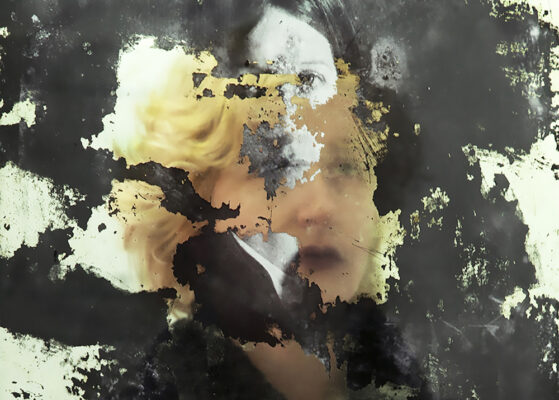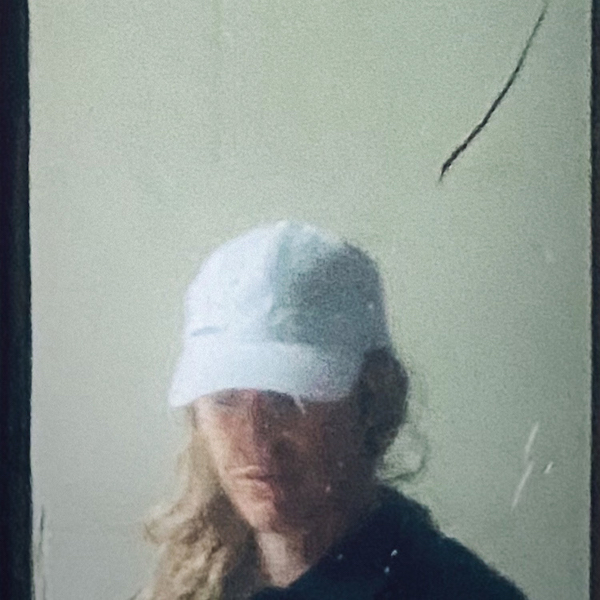Search
To search for an exact match, type the word or phrase you want in quotation marks.
A*DESK has been offering since 2002 contents about criticism and contemporary art. A*DESK has become consolidated thanks to all those who have believed in the project, all those who have followed us, debating, participating and collaborating. Many people have collaborated with A*DESK, and continue to do so. Their efforts, knowledge and belief in the project are what make it grow internationally. At A*DESK we have also generated work for over one hundred professionals in culture, from small collaborations with reviews and classes, to more prolonged and intense collaborations.
At A*DESK we believe in the need for free and universal access to culture and knowledge. We want to carry on being independent, remaining open to more ideas and opinions. If you believe in A*DESK, we need your backing to be able to continue. You can now participate in the project by supporting it. You can choose how much you want to contribute to the project.
You can decide how much you want to bring to the project.

We will begin with brief, enthusiastic, dynamic messages about a tremendous, challenging subject, that is, to remove metaphors from the common idea that sees them as a translation and not as a creation. I try to go beyond criticism of the damage that believing in Heaven or loving an ideology has done to us, to understand how the expression of something can take different forms and be better expressed. That is to say, how what can be said can be subordinated in relation to its first and invariable meaning. It is worth, therefore, to rethink the idea of freedom.
In any case, we know that an inside without an outside, a meaning without a signifier, and a soul without a body do not exist. Derrida Challenge: Are we not dealing with the contaminated part, the body, its signifiers, its precariousness of appearance? If so, then this is the part with which we must negotiate.
I see how quickly and obviously I fall into a trap that I thought was not mine. I look inside my somatic-epistemic-perceptive archive for “examples.” I can find a whole army of examples to bury the idea of metaphor as salvation, and all the references that occur to me are good because they oppose splitting, they resist the primacy of one segment over another, they are in favor of radical difference, they support collective agencies. And at the same time I myself am a bad example: I encounter forms here and there that represent the core idea that I intend to develop, and I hesitate because the philosophical expressions that legitimize my opinion make me feel good. I thought a list of favorites would be enough. I give up, but only a bit. In this way I do not become anything nor do I emancipate myself from anything. It is not easy to navigate the minority meaning when we walk around with a name, when the link with others demands language, grammar and meaning.
There are many who have resisted that which makes me uncomfortable: Nietzsche with his interpretation and the power of what is false. I look for more allies: Guattari and schizoanalysis; Haraway and narratives; Borges and the infinite; Beckett and all his ideas about faces; Deleuze and the inversion of Platonism; Foucault and the thought of the outside; Artaud and the theatre of cruelty. If we look at any poetry, however, we will immediately see that it resists being explained or numbered, or even being translated. Poetry is resistance, it stops all attempts at universalizing language. Those who have the ability to explain everything cannot deal with poetry. As soon as it is explained it is already something else, neither better nor worse, just something else. It is always degraded, it has no traceable original. The very act of reciting it creates something new. A poem can only be recited from memory. It contains the challenge of taking language to the extreme, it is its own edge, one which no longer represents anything outside of itself, it can only be duplicated in its exact equal and without the slightest displacement. It can be nothing but the overwhelming force of already being a metaphor.
I follow Deleuze’s advice (which he in turn took from Burroughs), to steal. And so I strategically take a concept: “It’s strange to say something in one’s own name, because one does not speak in one’s own name when one considers themself as an I, a person or a subject. On the contrary, an individual acquires an authentic proper name at the end of the most serious process of depersonalization, when the multiplicities that traverse him entirely are opened to the intensities that run through him.” Another theft: Supplement in Derrida. I won’t be very precise or very academic because I’m an artist, but I know that there is enough will in those two words to remain there for a while. Maybe just by being there something happens. Work in favor of what is alive and your metaphors will resist power.
If binary structures are naturalized (here are some random ones: identity/difference, signified/signifier, essence/appearance, natural/artificial) we cannot fail to see that one of the two terms, usually the first, unless we want to morally oppose it, functions as a center, governing the other, generating hierarchy, truth, origin, cause. The same will happen to metaphors if we let them fall into the jaws of Truth and Appearance. Even more so if we hand them over on a silver tray next to supremacy.
We know that supplemental is a supplement of a purer thing, a satellite of a centrality. In the same way, metaphors are not the thing itself but are always the other thing. To metaphorize is to evoke something, to speak of something in another way, but it is also to steal and to construct. Given the realm of dualisms, the question would be to see how we slip through them. It is no longer just a question of whether metaphor is the less pure side, the copy of something, its degradation; the challenge is to understand that it itself is the condition of the possibility of its center, while theft is the condition of possibility of its escape. The elements cannot be isolated, there is no original without a copy. Something saves us, we find a material resistance to the problem of representation and the duplicate worlds that we have suffered for so many years. To emancipate metaphor will no longer be to liberate the oppressed but rather to anarchize, disavow the very place of beginning.
So what is left of our proper name? It’s better to keep nothing of the personalism it implies. What can we expect from identity? Better that it does not express our being with legitimacy, sharpness or truth. What refuge awaits us from that which turns around and traps us again while rearming ourselves in a new split and dual system? If the proper name is intended to be nomenclature, to be a synthesis and reflection of who we are or who we are not, then that very intention is a prison called legitimacy. The false choice of that form of freedom generates its own dependence, ever more precise, ever purer. What unites essence and appearance, who we are and what our name is, is nothing more than power. There is nothing there, we spin around in the trap of knowledge, lost. As if there were something to find, a place to arrive! As if there were another world other than this one.
With our proper name (now in lowercase) we can do many things without fear or hope, having gotten rid of all residues of personalization and truth.
What I write emancipates what I take as my own. I realize that what I have to say is nothing more than the voices of others. If writing this article did anything, it was to make me a subject-metaphor, where what subjects me, what sustains that which is underneath, the sub-jectum, is nothing more than impurity, miscegenation, precariousness and perishability. The supplement and the proper name are on the same team.
To emancipate the metaphor, then, will no longer be to liberate the oppressed in a poorly expressed I, giving it a more genuine form of existence where its function is limited to liberating material power, be it metaphysical or contingent (language, the episteme of the epoch, the ruling government). Perhaps, metaphorical emancipation has more to do with anarchizing the very initial place that liberates and from which, we eventually suppose, it starts. Perhaps this gesture has at least two resistances: one of disavowing the origin and therefore its author, its reflection, and the univocity of its existence. And the other, of always existing impurely, plural, complex and different.
PS: I forgot what I left hanging: a while ago I thought about the option of being talked about, that what I believed to be my opinion, what I wanted to say as the author of this article, now seems to me to be illegitimate. It seems that everything I think is part of what I read (I can’t remember if I read it or saw it in a documentary or talked about it with someone) and that at the same time all of that is built from fragments, from random and involuntary mixtures. I believed that it was mine, that what I did, thought and felt was my own. It is uncomfortable but it doesn’t bother me. I can deal with not being original. I can deal with always being someone else. I can deal with being a metaphor.
[Highlighted Image: Rosana Simonassi (2015) Blinde Klippe 1, “reflejo” (reflection), courtesy of the artist]

Rosana Simonassi, born in Buenos Aires, is a visual artist, teacher and researcher with an outstanding career in the exploration of the link between image and identity. She studied art, philosophy and film. Her interest in critical thought and contemporary art took her to New York thanks to a scholarship, where she began her research as an artist. Her work is characterised by the use of her own body to embody the subjects she deals with, questioning the construction of identity through the image. She has exhibited in Spain, France, Canada, Mexico, the United States, Uruguay and England, and is the author of the publications Reconstrucción and Mácula. Since 1999, she has dedicated herself to experimental research, teaching in the arts and the practice of psychoanalysis. She currently lives in Buenos Aires and alternates her residence with other places.
"A desk is a dangerous place from which to watch the world" (John Le Carré)